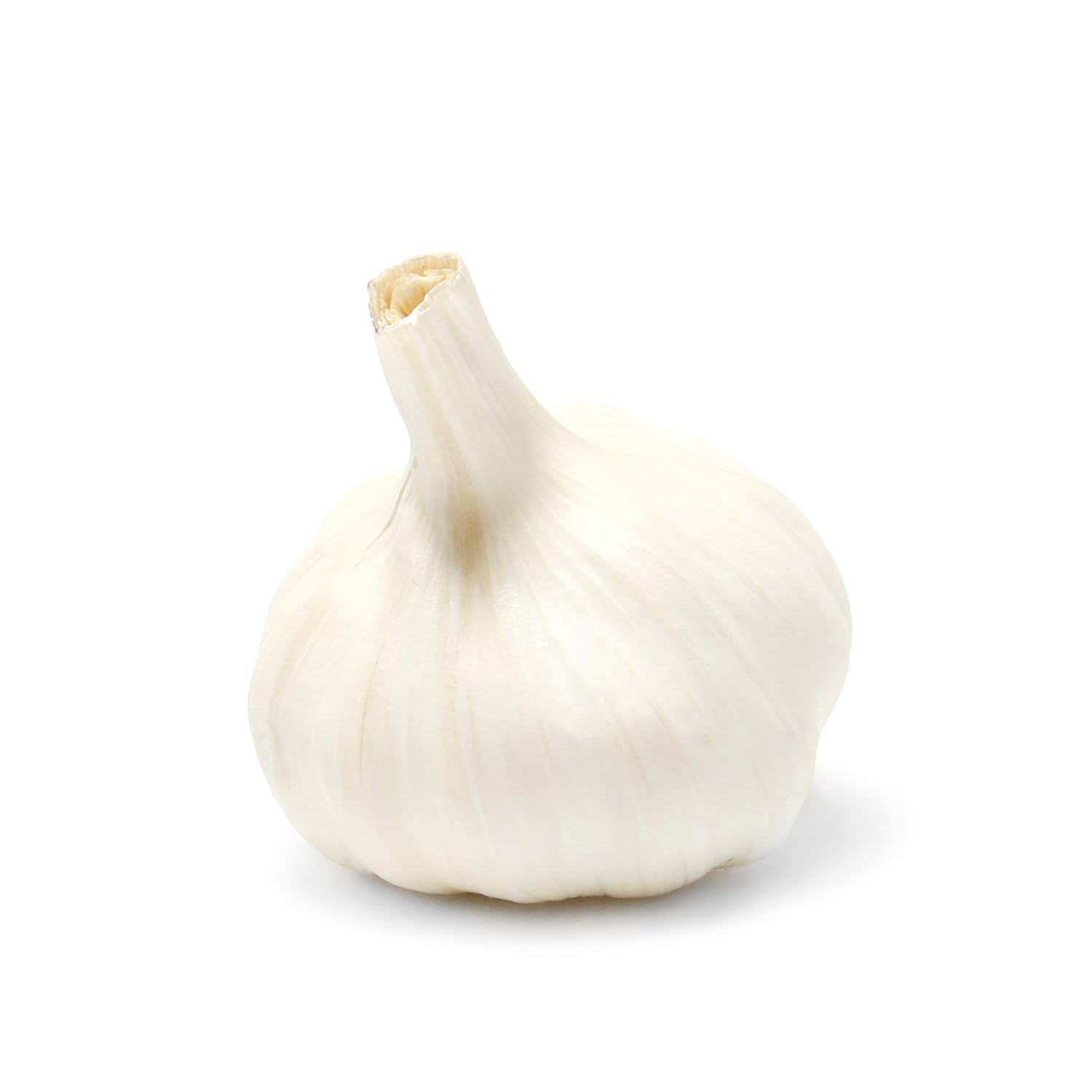Garlic Remedy for Tonsillitis: A Natural Solution for Soothing Sore Throats
Garlic has been a natural remedy for centuries, and it offers some impressive benefits, especially for those dealing with tonsillitis. Many people find that garlic’s antibacterial and antiviral properties can help soothe a sore throat and fight infection. If you’re experiencing pain from swollen tonsils, you might be curious about how garlic can make a difference in your recovery.

Incorporating garlic into your diet can be a simple yet effective way to ease symptoms and support your immune system. Whether you choose to eat it raw, cook with it, or make a soothing garlic tea, this humble bulb can be a powerful ally against tonsillitis. Understanding how garlic works and the various ways to use it will help you feel more empowered in your healing journey.
Key Takeaways
- Garlic has strong antibacterial and antiviral properties that can alleviate tonsillitis symptoms.
- Including garlic in your diet may provide quick relief from sore throat discomfort.
- Home remedies like garlic can enhance your immune system to help fight infections.
Understanding Tonsillitis

Tonsillitis is when your tonsils become inflamed, usually due to infections. It can be caused by either bacteria or viruses. Knowing what causes tonsillitis, how to recognize the symptoms, and when to seek medical help can help you manage the discomfort effectively.
Causes and Types
Tonsillitis can occur for several reasons. The most common causes are viral infections like the cold or flu. However, bacteria, particularly streptococcus, can also lead to tonsillitis.
There are two main types of tonsillitis:
- Acute tonsillitis: This type comes on suddenly and lasts for a short time. It often includes severe symptoms.
- Chronic tonsillitis: This may linger for a longer period and can happen repeatedly. Symptoms may be milder but are still bothersome.
Sometimes, tonsillitis can lead to a peritonsillar abscess, which is a collection of pus near the tonsils. This condition can occur when the infection spreads.
Common Symptoms
The typical symptoms of tonsillitis can significantly impact your daily activities. One of the most common signs is a sore throat. You may also notice:
- Swollen tonsils that can be red and have white patches.
- Difficulty swallowing because of pain.
- Fever that may accompany other symptoms.
- Bad breath or a strange taste in your mouth.
You could also experience headaches and earaches since the throat and ear are connected. If these symptoms appear suddenly, especially after getting a cold, it’s a strong sign of tonsillitis.
When to See a Doctor
Sometimes, tonsillitis requires medical attention. You should visit your doctor if you experience:
- Severe difficulty swallowing.
- A high fever (over 101°F or 38.3°C).
- Symptoms that last longer than a couple of days.
- Any signs of dehydration, like not being able to drink fluids.
Additionally, if you see swollen lymph nodes in your neck or notice a rash, seek help. Proper diagnosis and treatment are important to prevent complications like a peritonsillar abscess.
The Wonders of Garlic
Garlic is not just a tasty addition to your meals; it also packs a powerful punch when it comes to health benefits. Its rich properties can be especially helpful for fighting infections and boosting your immune system.
Garlic’s Medicinal Properties
Garlic contains a compound called allicin, which is known for its strong antibacterial and antiviral properties. This means it can help fight off harmful germs that cause illnesses.
Additionally, garlic acts as an anti-inflammatory. This helps reduce swelling and pain, making it useful for various ailments, including tonsillitis.
By including raw or cooked garlic in your diet, you can tap into its natural healing potential.
How Garlic Helps with Tonsillitis
When you have tonsillitis, your tonsils become inflamed, leading to discomfort. Garlic may help ease this condition.
As a natural remedy, it can boost your immune system, aiding your body in the fight against the virus or bacteria causing tonsillitis.
You might also try making garlic tea for relief. Simply simmer chopped garlic in water and drink it warm. This soothing beverage combines the benefits of garlic with hydration, helping to alleviate throat pain.
In short, incorporating garlic into your diet can provide significant support during an episode of tonsillitis, making it a worthy addition to your home remedy toolkit.
Holistic Home Treatments
When dealing with tonsillitis, taking a holistic approach can be incredibly helpful. You might find relief through natural remedies, supportive herbs, and focusing on your diet to strengthen your immune system.
Natural Sore Throat Relievers
Sore throats can make everything feel uncomfortable. Here are some effective home remedies:
- Gargling with warm salt water can ease throat pain. Mix about 1 teaspoon of salt in a glass of warm water, gargle, and spit it out.
- Honey is known for its soothing properties. Add it to warm drinks or take it straight to coat your throat.
- Throat lozenges can provide temporary relief by keeping your throat moist.
- Warm beverages like chamomile tea or ginger tea can also help. They provide hydration and comfort, which are essential for recovery.
Staying hydrated is crucial, so drink plenty of fluids to help ease discomfort.
Herbal Infusions for Immunity
Certain herbs can boost your immune system and help fight infection. Consider these options:
- Echinacea is often used to strengthen your immunity. You can find it in tea or supplement form.
- Peppermint tea not only has a refreshing taste but can also soothe your throat.
- Chamomile tea is great for relaxing and can reduce inflammation, making it ideal for sore throats.
- Fenugreek seeds can be brewed into a tea that helps reduce swelling.
Combine these herbal remedies to create comforting infusions that support your recovery.
The Role of Diet in Healing
What you eat can support your healing process. Here’s how to focus your diet:
- Prioritize anti-inflammatory foods. Think fruits like berries and vegetables like spinach. These help your body fight infection.
- Include ginger in your meals or drinks. It has natural anti-inflammatory properties.
- Consuming broth-based soups can keep you hydrated and provide essential nutrients.
- Avoid dairy products if you notice they increase mucus production.
Eating well gives your body the nutrients it needs to recover effectively.
Practical Tips for Managing Symptoms
When dealing with tonsillitis, you can take some practical steps to ease your symptoms. Focus on soothing the pain, reducing swelling, and making adjustments to your diet and lifestyle. These tips can help you feel more comfortable while you recover.
Soothing Throat Pain
You might feel pain when swallowing or speaking. To help, you can use throat sprays that are designed to numb discomfort. These sprays can provide quick relief and are easy to use.
Raw honey is another great option. It has natural soothing properties and can coat your throat. Mixing honey in warm water or herbal tea can be especially comforting.
Don’t forget about over-the-counter options like ibuprofen or acetaminophen. These can help reduce pain and fever while allowing you to get back to your daily activities.
Addressing Swelling and Inflammation
To tackle swelling and inflammation, try using a humidifier. This adds moisture to dry air, which can soothe your throat, especially if you’ve been feeling congested. A humid environment helps reduce irritation and makes it easier to breathe.
Cold foods like ice cream or popsicles can also help. They numb the throat and reduce inflammation, making it easier to swallow.
Additionally, drinking warm liquids is important. Herbal teas or broths can provide comfort and help clear up congestion while keeping you hydrated.
Diet and Lifestyle Adjustments
What you eat and drink can greatly affect your recovery. Focus on soft foods that are easy to swallow. This includes mashed potatoes, yogurt, and smoothies. Avoid spicy or acidic foods that might irritate your throat further.
Stay hydrated! Drink plenty of fluids, particularly warm ones, to keep your throat moist and help with healing.
Incorporating antioxidants from fruits and vegetables into your diet can also support your immune system. Smoothies with berries are delicious and nutritious.
Lastly, make sure to get enough rest. Your body needs it to fight off the infection and recover fully. Staying cozy and relaxed will make a significant difference.
Prevention and Long-Term Care
Taking steps to prevent tonsillitis can help keep your throat healthy. Proper care and a few lifestyle choices can also support your long-term well-being. Here are some key ways to enhance your immunity and be aware of potential complications.
Boosting Your Immune Health
Your immune system plays a big role in fighting off infections like tonsillitis. To keep it strong, focus on a balanced diet with plenty of fruits and vegetables. Foods rich in vitamins C and D, and zinc can boost your ability to fend off illnesses.
Regular exercise also strengthens your body. Aim for 30 minutes of activities you enjoy, like walking or cycling, several times a week. Don’t forget about hydration! Drinking water helps flush out toxins and supports overall health.
Good hygiene is crucial too. Wash your hands often and avoid close contact with people who are sick. This can help you steer clear of germs that cause infections such as strep throat or even lead to bad breath and tonsil stones.
Tonsillitis Complications
Ignoring tonsillitis symptoms can lead to complications. You might experience swollen lymph nodes, headaches, and neck pain from untreated infections. In some cases, tonsillitis can progress to quinsy, a serious throat infection that may require emergency care.
Consider that chronic tonsillitis can lead to surgery. A tonsillectomy might be necessary if you face frequent infections or develop tonsil stones. Understanding these risks helps you take action early.
If you notice persistent symptoms or complications, it’s essential to consult a healthcare professional. They can guide you on the best path to treatment and ensure you stay healthy.
Frequently Asked Questions
If you’re dealing with tonsillitis, you probably have some questions about home remedies. Garlic is often mentioned for its potential benefits, but there’s more you can look into for relieving your throat discomfort.
What’s a quick way to soothe a sore throat overnight?
A quick way to ease a sore throat is to mix warm water with salt and gargle. This can help reduce inflammation. Additionally, sipping on warm herbal tea with honey can provide immediate relief.
Can you make a tea with garlic to ease a sore throat?
Yes, you can make garlic tea. Simply boil chopped garlic cloves in water for about 10 minutes, strain, and drink. Adding honey can enhance the flavor and offer more soothing benefits.
Does white vinegar have any effect on tonsillitis?
White vinegar may help due to its acidity, which can kill some bacteria. Mixing it with water and gargling might offer temporary relief, but it’s not a cure for tonsillitis.
Is there a rapid remedy for curing tonsillitis?
There isn’t a guaranteed rapid remedy to cure tonsillitis. Home remedies can help with symptoms, but medical attention may be needed for a full recovery, especially if it’s viral.
Does garlic have to be raw to help with a sore throat?
Garlic is most effective when raw, as cooking can reduce its beneficial properties. However, using it in tea or honey can still provide some relief if raw garlic isn’t your preference.
Will ginger and garlic together help knock out tonsillitis?
Combining ginger and garlic can be effective. Both have anti-inflammatory properties and may help relieve throat pain. Drinking a tea made with both ingredients can be soothing and beneficial.

